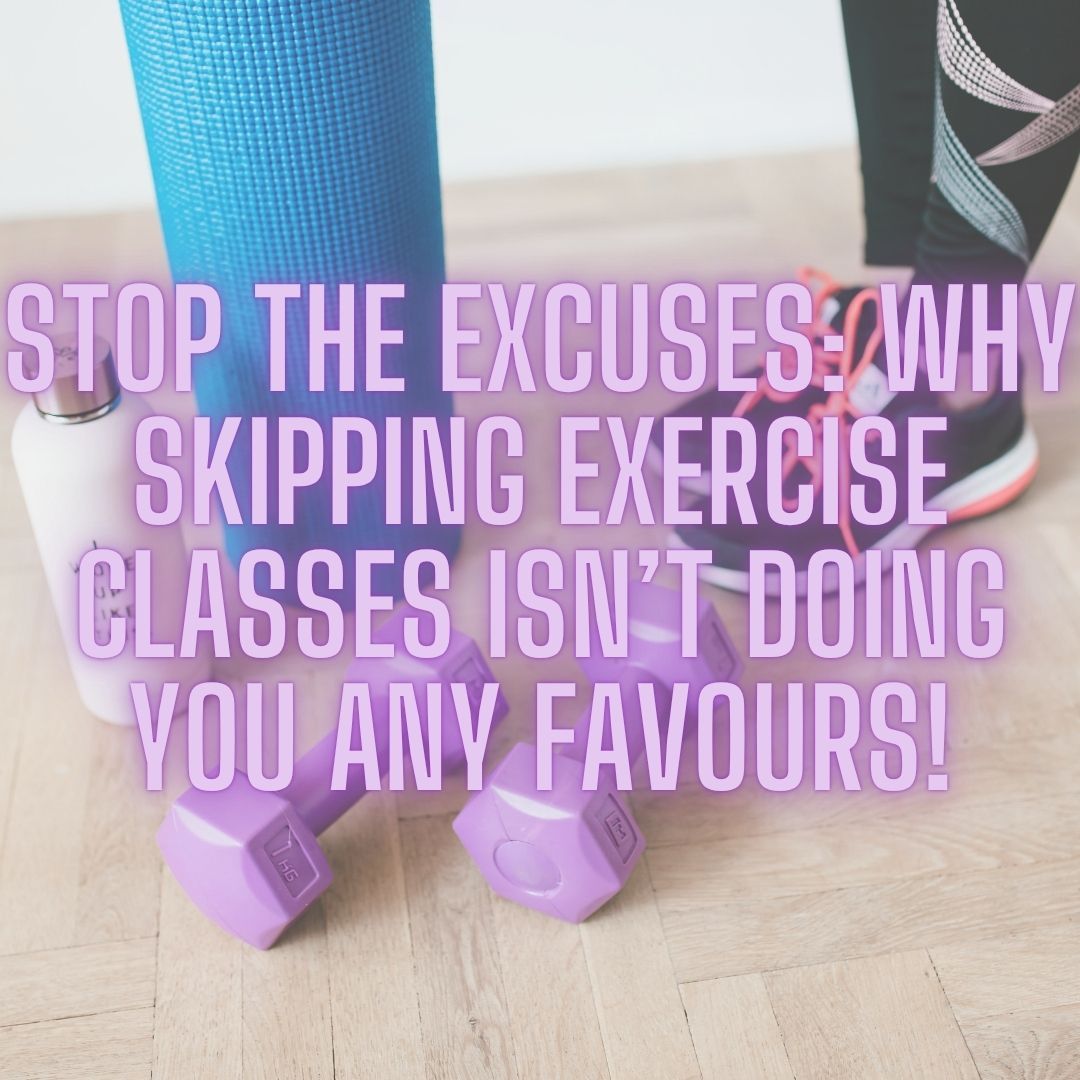We’ve all been there. The alarm goes off, the gym bag waits by the door, and suddenly a dozen perfectly reasonable-sounding excuses pop into your head. You’re too tired, too busy, not in the mood, or—my personal favorite—you’ll definitely go tomorrow.
But here’s the truth: excuses might feel comforting in the moment, but they quietly sabotage your progress, confidence, and long-term goals. The more we give in to them, the easier it becomes to let a one-time skip turn into a week… then a month.
Let’s pull back the curtain on excuses - why we make them, the most common ones, and why trusting them is a bad idea. Of course, there are GENUINE REASONS (not excuses) why you'd skip an exercise class, too, and your instructor will ALWAYS be sympathetic to those.
Why We Make Excuses
Excuses are usually a form of self-protection. They’re your brain’s attempt to:
- Avoid discomfort
- Conserve energy
- Stay inside your comfort zone
- Escape the fear of failing or not performing well
The problem? Growth, fitness, and health all live outside the comfort zone. Excuses keep us safe—but they also keep us stuck.
Typical Excuses We All Use
1. “I don’t have time.”
Reality check: If you tracked your screen time, you’d probably find the missing hour. Even a 30-minute class is manageable - but excuses make time disappear.
2. “I’m too tired.”
Movement boosts energy. Ironically, skipping workouts often makes us more sluggish long-term.
3. “I’ll start fresh tomorrow.”
Tomorrow is the biggest liar. Motivation rarely appears magically - you create it through action.
4. “I’m not in the mood.”
Mood follows movement. Once you get started, your brain releases endorphins that shift your mindset.
5. “I’m sore.”
Some soreness is normal - and moving can actually help. There’s a difference between injured and uncomfortable.
6. “It’s too hard.”
That’s the point. Exercise classes are designed to challenge you, not punish you. Progress requires effort.
7. “I don’t want to go alone.”
Everyone feels awkward the first time. But classes build community faster than any solo routine.
8. “I won’t do well today.”
Not every workout will be your best. Showing up on your “bad days” is what builds consistency - and real results.
Why Excuses Hurt More Than They Help
1. They build a habit of avoidance.
Every time you listen to an excuse, you reinforce the behavior. It becomes easier to skip ... and harder to start again.
2. They rob you of progress.
Even one missed class stalls momentum. Exercise works best when it becomes a routine, not an occasional effort.
3. They damage confidence.
Keeping promises to yourself builds trust. Breaking them chips away at it.
4. They create stress.
Skipping may feel good in the moment, but regret hits later - especially when goals start slipping out of reach.
What to Do Instead of Making Excuses
- Set a non-negotiable schedule (like brushing your teeth).
- Prepare ahead—clothes, water bottle, shoes.
- Use the “five-minute rule”: Commit to five minutes; if you still want to leave, you can ... but you usually won’t.
- Focus on how you'll feel afterward, not how you feel right now.
- Find accountability—friends, instructors, classmates.
Final Thoughts
Excuses are normal. They’re human. But if you want results - better health, more strength, improved confidence - you need to stop letting them run the show.
Next time your mind offers an excuse, pause. Take a breath. Show up anyway. Your future self will thank you, and your excuses? They won’t stand a chance!


